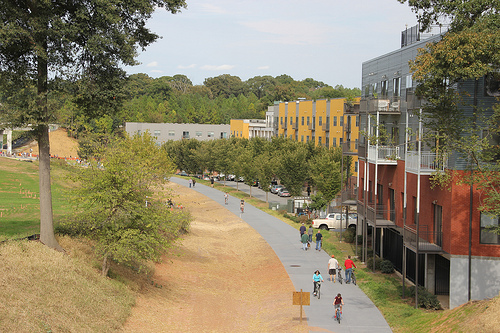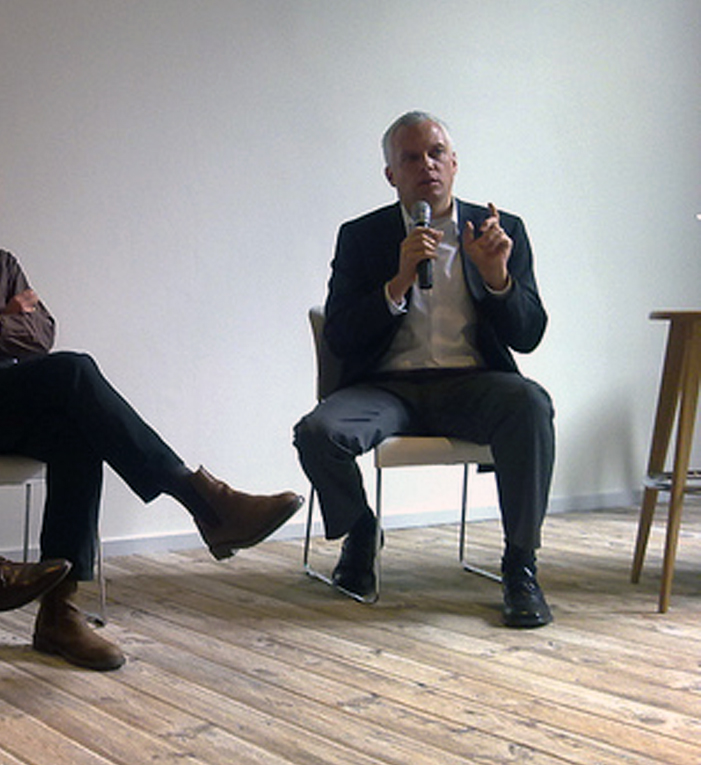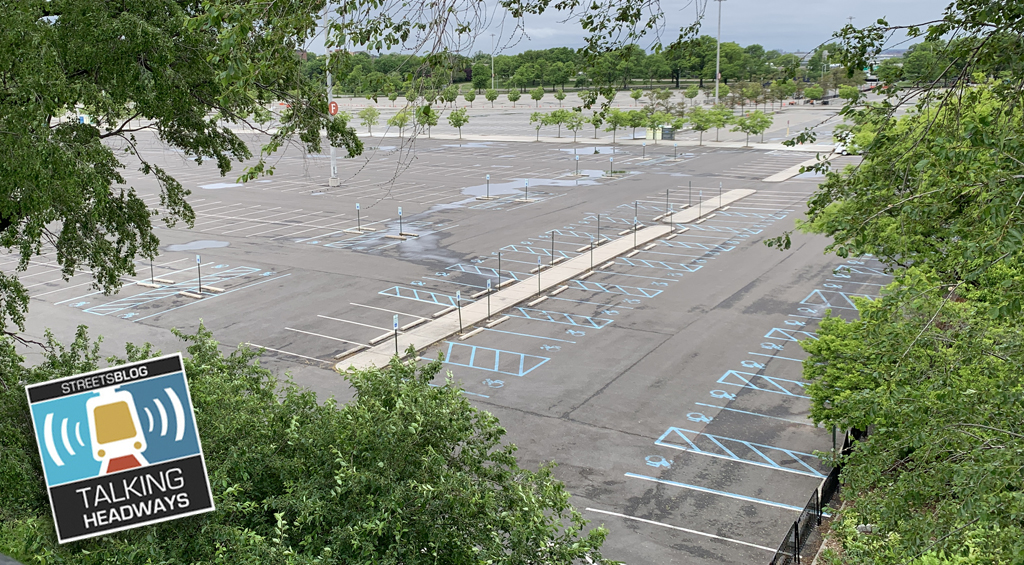Not many planners get an opportunity to influence their city in the way Atlanta's Ryan Gravel has.

The concept Gravel laid out in visionary master's thesis -- transforming forgotten railroad tracks circling the city of Atlanta into a recreational and active transportation corridor -- laid out an entirely new organizing principle for the city and inspired thousands. Construction is well underway on his "BeltLine," and national observers including the New York Times have heralded its potential to change the way Atlanta develops -- from car-oriented chaos to a more walkable, urban, and connected way of life.
So it was a big deal last week when Gravel announced he was resigning from the Atlanta BeltLine Partnership Board -- the funding arm of the project -- due to concerns about gentrification.
We caught up with Gravel by phone to learn more about why he felt it was important to take a very public stand on this issue.
How long had you been on the board of the Atlanta BeltLine Partnership?
I started in 2009, I believe. I was nearing the end of two four year terms.
The [BeltLine] Partnership has always been this sort of philanthropic fundraising for parks and trails, awareness campaigns like bus tours, and advocates for social sides including affordability, but also jobs and health, making sure the BeltLine lives up to its goals.
There’s always been this sort of balance in the Partnership about what’s important.

It’s just become clear with the economy roaring back and the population in the city growing quite a lot, and projected to grow quite a lot, if we want to live up to the promise of the BeltLine we need to get more aggressive on [housing] affordability.
You’ve been following the BeltLine long enough to know that it’s built on a grassroots mission. It was a diverse coalition. And we’re accountable to them.
We haven’t lost that. With the rising urgency of affordability, it’s important that we follow through on those promises.
Was there one particular thing that was the final straw for you?
The thing that really did it was letting go of the executive director [Chuck Meadows] and the explanation for that. I can’t say what they were but that was part of the executive session for the board.
He was a guy that was pretty committed to affordability?
Yes. When he was hired a few years ago, we went through a big process about striking the right balance and the need to elevate the conversation around equity.
He was let go in July.
Who replaced him?
The deputy executive director [Rob Brawner].
What were the internal politics? Was there a real struggle over the direction of the agency?
There’s been a historic kind of tension between the need to raise money for the project and the need to leverage some of the community’s passion for the project to achieve political pressure to achieve its outcomes.
The rabble rousing of the community around issues can unsettle some funders, for example. Advocating for community voice is not something a lot of people are comfortable funding.
That tension’s been around for a long time.
With all the new growth happening post-recession, [the subject of housing affordability has become] unavoidable.
The Old Fourth Ward, which is the home of Dr. Martin Luther King, is rapidly changing and it’s very visible and obvious. It’s not that neighborhoods shouldn’t change or there’s not room for a lot more people, it’s about making sure that people who made the project possible in the first place get to stay and enjoy the benefits. And the only reason they won’t be able to stay is they can’t afford it. The rents are going up and the taxes are going up.
When you look at other cities and what’s happening in New York and San Francisco, we’re not there yet and we may never get there. [But] it’s urgent. It’s already undergoing those changes. It’s not too late to increase the affordability but it is too late for some of the individuals. If you look at south and west Atlanta, it’s still very affordable. If we care, we have to act now.
What should project leadership be doing?
Some of it is just improved policies through zoning -- accessory dwelling units, any number of things unlocking barriers to more innovative housing models that are more affordable than the traditional housing models. It’s not a single kind of silver-bullet thing. We need to become more open, and urgent and experimental about how to address the problem.
We need to have a more public dialog around affordability and equity. And we have to find the answer. I’m not the policy guy. There are plenty of people who do know what the tools are. What’s hard to do is make them happen.
The commitment under the [tax increment financing] district is 5,600 [affordable] units. That’s a big deal. But it’s not enough. We need to be following through on that. That particular tool and mechanism has some challenges. We need to be doing other things.
That original vision was built around a very diverse group of people and the only reservation at that time was that people who were lower income were worried they wouldn’t be able to stay around and enjoy the benefits.
The local sort of voice of communities on this issue has disappeared and I’d like to help revitalize that effort.
The people that are moving into the city, they don’t want to be displacing people. This is a really tough problem and it’s going to take a really honest and difficult dialog. We need to have that conversation and we need to be willing to be vulnerable.
How many affordable units have actually been constructed?
I don't know exactly. The commitment is 5,600. Given that we’re 10 years into a 25-year project we should have more done and a lot of that is because of the recession.
[Editor's note: The Atlanta Beltline reports 2,200 "affordable workforce" have been built or preserved since 2006. More than 1,000 of those were directly supported by the organization.]
What are you planning to do next?
There’s lots of directions this could go. The departure of the executive director was really a surprise for me, was significant enough for me to make me refocus my efforts.
Nathaniel Smith, who also resigned, is the director of the Partnership for Southern Equity and we share a lot of the same ideas for where that might go.
Whether a new organization is built within the existing organization or whether some voices do this more organically, that will shake over the next few months. I just know that we’re not doing enough and communities are really hurting and you can see the transformation that is coming.
Note: Post was modified after publication to add official information about the number of affordable housing units constructed.





